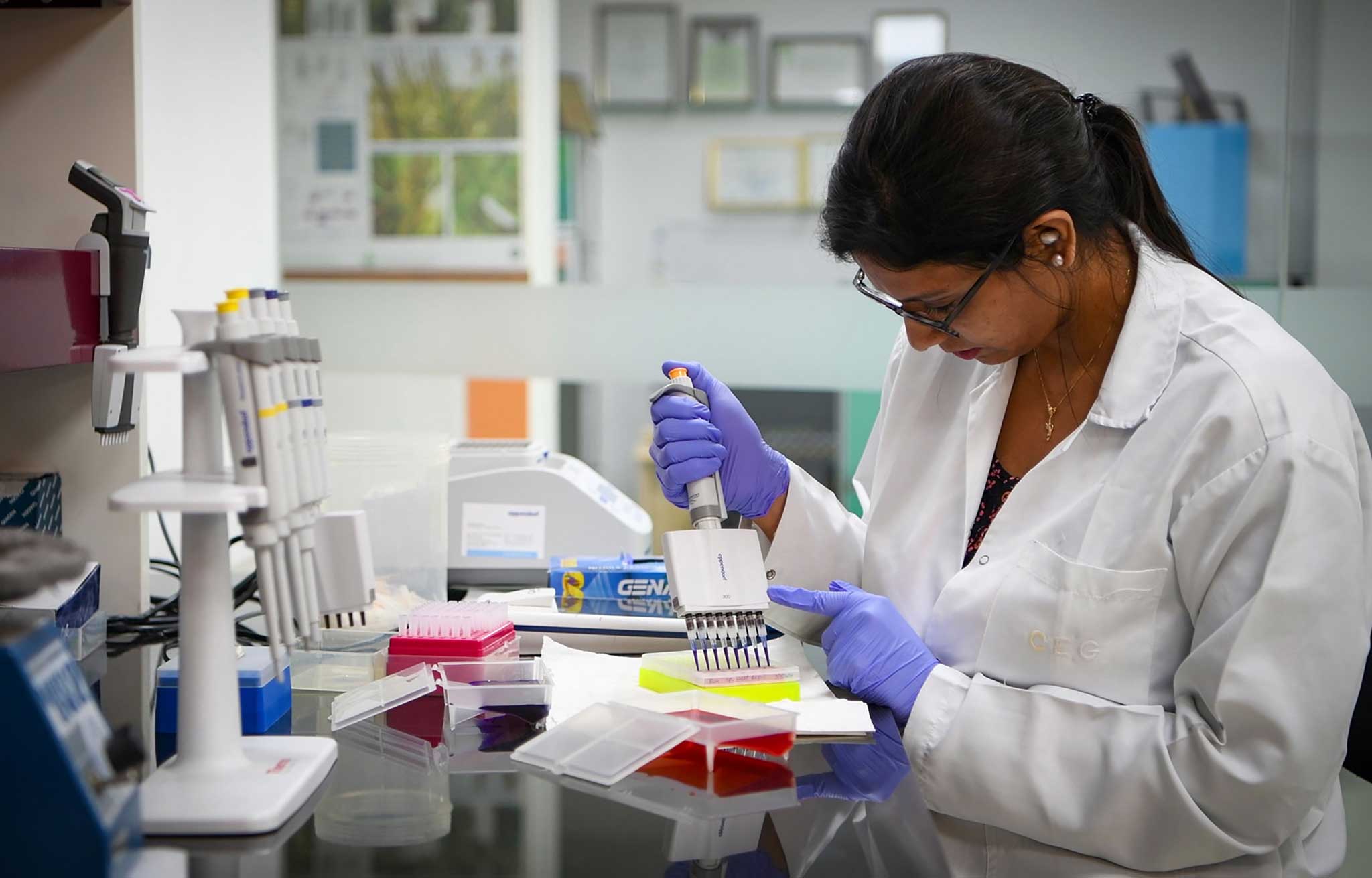The Genomics, Pre-breeding, and Bio-informatics (GPB) Cluster is dedicated to utilizing leading technologies to enhance the precision and efficiency of breeding pipelines across all ICRISAT speciality crops in Asia and Africa. The cluster leverages forward and reverse genetics, as well as "omics" technologies, to improve the understanding and utilization of crop genomes, characterize pathogens and pests, and identify markers associated with important traits.
One of our key focuses is exploring the diversity and molecular characterization of germplasm, breeding lines, varieties, hybrids, and beneficial microorganisms. Through advanced sequencing technologies and bioinformatics, we delve into the genomes of our mandate crops, including pangenomes, to map markers associated with biotic and abiotic stress resistance, quality traits, adaptation, and agronomy-related characteristics.

This knowledge allows us to develop cost-effective low-, mid-, and high-density SNP panels that play a crucial role in germplasm characterization, genomic selection, marker-assisted breeding, variety tracking, seed health assessment, and genetic purity evaluation.
Through forward and reverse genetics, as well as other "omics" technologies, we aim to identify valuable genes from unadapted germplasm and introduce them into breeding programs, thus expanding the elite genepool and enhancing crop resilience. Our efforts also extend to knowledge generation, capacity building, and the development of analytical tools, platforms, and public databases that facilitate access and utilization of genomic data by the breeding community.
The GPB Cluster focuses on several key areas and technologies including:
Through our work in the GPB Cluster, we are committed to advancing the field of genomics, pre-breeding, and bioinformatics to enhance crop improvement efforts. By leveraging the power of advanced technologies and collaborative partnerships, we contribute to the development of improved crop varieties that address the challenges faced by farmers and promote sustainable agriculture in dryland regions